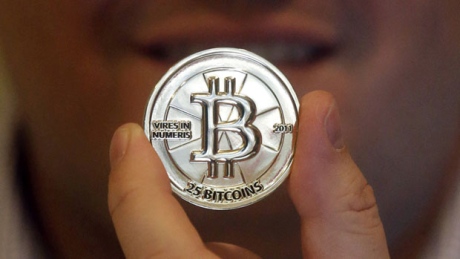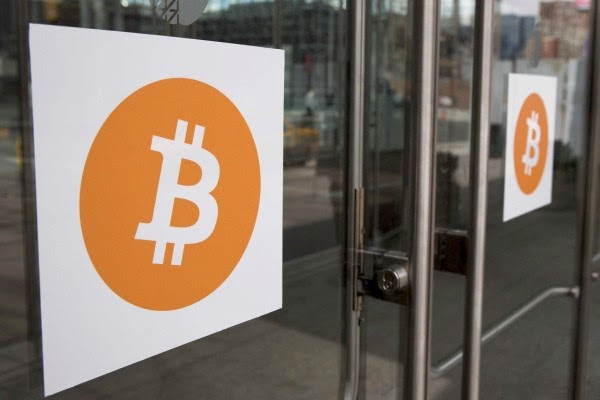
The National Bank of Kazakhstan announced it is looking to test blockchain technology in order to sell short-term debt notes.
In an official statement published today, the Kazakhstan central bank revealed its plan to launch a new mobile app that to sell the short-term debt notes to investors– denominated in amounts worth 100 tenges (the national fiat currency) – without relying on third-party brokers.
At the moment, this app is being tested within the bank, and its launch is expected by the end of 2017.
In the long term, the Kazakhstan bank commented that the app could be used to make initial public offerings (IPOs) easier.
Also, the financial institution explains it wants to work with the country’s banking industry on possible future versions and uses.
“In this area, the project will continue to search for additional solutions, including the involvement of commercial banks,” the statement explained.
The Central Bank explained that it has been looking at the distributed ledger for potential applications since 2016.
A few months ago, regional news source called Tengri News reported that officials were studying possible blockchain use cases, especially those focused on payments.
Read more about blockchain-related projects developed by banks.
Open your free digital wallet here to store your cryptocurrencies in a safe place.

A new project related to blockchain passports is being developed by the Dubai government and the English startup called ObjectTech with the main objective of improving security for the Emirate’s airport.
A few days ago, ObjectTech announced that it is working together with the Dubai Immigration and Visas Department to create blockchain passports to potentially eliminate manual checks at Dubai International airport.
This system exploits biometric verification and blockchain technology in order and it will use a “pre-approved and entirely digitized passport” in order to easily and safely authorize travelers’ entrance into the Emirates.
Also, thanks to blockchain passports, people will be identified through a 3D scan via a short tunnel while they walk from the aircraft to claim their baggage.
Thanks to the use of a distributed ledger technology (it’s still unclear what blockchain will be used), ObjectTech explained that passports will contain a feature called self-sovereign identity for privacy protection, which it allows travelers to control which parties can view their info.
Co-founder and CEO of ObjectTech, Paul Ferris, wrote a blog post where he explains that the company aims at making the border process quicker and safer, and also giving passengers full control of their digital data. A pilot program is anticipated to be ready by 2020, although a detailed project timeline remains unclear.
A pilot program will be ready by 2020.
Dubai is not new to this kind of projects. A few months ago, in fact, Dubai government revealed its idea to solve immigration issues with the blockchain.
Open your free digital wallet here to store your cryptocurrencies in a safe place.

Back on May 31st, one the major Bitcoin exchanges in China called OKCoin returned to help improving the Bitcoin demand withing the Chinese exchanges after a period of suspension of transactions.
As a result, more bitcoin investors are recovering their interest in bitcoin and they are driving the demand for the digital currency.
So, thanks to the activation of withdrawals, bitcoin is now trading at a premium rate in China.
Also, the Chinese press that talks about bitcoin as digital gold is pushing the recent growth of the bitcoin demand for local traders.
On Friday, bitcoin price was about $2,340 in China. A value that was $50 higher than the US rate.
Of course, there are several other major factors that are driving bitcoin price. For example the legalization of the digital currency in Japan, and the use of ICOs in raising funds.
Experts believe that the increasing demand in Asia is pushing the recent growth in the bitcoin price.
In South Korea, Bitcoin price increases up to $3,100 when the price on the US exchanges was about $2,400, so $300 higher than the US.
A few startups are also using bitcoin for sending remittances since it works better and faster than traditional money.
For example, one of these startups is called Bluepan, located in South Korea. This company provides an easy way to send money from overseas workers to their families.
In 2 years, Bluepan has processed payments worth $65 mln and for the past year, they recorded a five-time increase in transactions.
That said, it is clear that Bitcoin demand in Asia is increasing and its driving prices, while North America shares only a small amount of all users in any sector.
For example, there are fewer customers in North America who use money transfers than in Asia.
This is maybe due to the fact that the worldwide financial system is based on the US dollar, so remittance transactions are easier between dollars and non-dollar currencies compared with transactions that involve two non-dollar currencies.
Open your free digital wallet here to store your cryptocurrencies in a safe place.

Peach Aviation is going to become the first Japan’s airline to accept bitcoin for buying any flight.
This move comes after the Japanese decision to regulate bitcoin as currency, becoming a legal method of payment back in April 1st, 2017.
During a recent interview with CEO Shinichi Inoue, he said:
“Now you can travel without your wallet. I think this is innovation; we’ll put all our energy into it.”
Peach is a budget domestic flights company that operates in Korea, China and Thailand.
The firm announced that they will accept bitcoin payments by the end of 2017; also, the firm is looking to install Bitcoin ATMs at airports.
“This is a real first step in partnerships for Japan and we are aiming for more company and service tie-ups,” said Inoue in an interview conducted by Bloomberg.
“We want to encourage visitors from overseas and the revitalization of Japan’s regions.”
Several major retailers and merchants are starting to accept bitcoin in Japan thanks to the recent law on digital currencies, as you can read here.
And this is maybe one of the prominent reason why bitcoin price is growing so much during the latest period.
Also, Japanese traders are driving bitcoin prices as they transacted huge amounts on the exchanges: recent studies revealed that Yen is the major fiat currency being exchanged for bitcoin.
There are a few other bitcoin airlines in the world and also several ways to book a flight with digital currencies.
For example, CheapAir and BtcTrip are the first platforms that accept this disruptive method of payment.
Also, Latvia-based airline and Virgin Galactic began accepting bitcoin since 2013/2014, while if you want to book a private jet, you can do it through JetVizor.
More bitcoin airlines to suggest? Write us a message in the comments! We would be happy to add new companies.
Open your free digital wallet here to store your cryptocurrencies in a safe place.

 LuxTrust, together with a Massachusetts-based startup and the support of the Luxembourg government, is building a new Blockchain ID platform.
LuxTrust, together with a Massachusetts-based startup and the support of the Luxembourg government, is building a new Blockchain ID platform.
Announced today, the project sees also the participation of the US startup Cambridge Blockchain.
Luxembourg owns two-thirds of the LuxTrust company, and the rest is handled by a consortium of banks and financial institutions that utilize the service itself.
LuxTrust is now working on how to integrate the blockchain, paving the way to its 500,000-strong subscriber base to use the distributed ledger in some capacity.
According to Matthew Commons, CEO of the Cambridge Blockchain, this partnership was born thanks to an initial conversation about blockchain ID.
“By combining LuxTrust’s current certified services such as authentication, signature and document management with our innovative blockchain-based enterprise software, our collaboration will deliver the future of digital identity for Europe and beyond,” he explained to Coindesk.
The Blockchain ID platform will be rolled out during the next few months, in what Commons called something like a “soft launch”.
He explained that one of the most important reasons for the creation of the Blockchain ID platform is the data-centric regulation (including the European General Data Protection Regulation) that are due to come in mid-2018.
“Working with Cambridge Blockchain allows us to augment the scope of identities, including any attributes, and will enable users to share personal data fully respecting the increasingly stringent European regulatory framework,” commented LuxTrust’s CEO, Pascal Rogiest.
Back in February 2017, the Cambridge Blockchain company raised $2m in a funding round, receiving support by VC firms Partech Ventures and Digital Currency Group. Commons also explained that his startup wants to complete a new Series A round by the end of 2017.
That said, we’re very happy to read about the Luxembourg government involvement in a blockchain-related project since HolyTransaction is based here.
Open your free digital wallet here to store your cryptocurrencies in a safe place.

A new Oracle blockchain – related project suggests that the database giant wants to use the distributed ledger in order to improve its internal workflows.
On April 27th, the US Patent and Trademark Office (USPTO) published an application titled “Managing Highly Scaling Continuous Delivery Pipelines”.
First filed in September, 2016, this application explains the use of a “pipeline blockchain” to be used as distributed information points for product delivery processes.
The only inventor quoted on the application is Duncan Mills, a software architect for Oracle.
As detailed in the application, this project is focused on exploiting the distributed ledger ability to provide transparency in order to keep data related to each employee who is contributing to a specific work process.
This would include how they work and what their next tasks; everything happens in real time.
“By its nature, the pipeline blockchain approach provides a self-correcting mechanism for recording and reconciling the state of a pipeline after a system failure. For example, if the record store becomes unavailable, pipelines can continue to process in a fail-safe mode using peer-to-peer reconciliation of the pipeline blockchain, thus maintaining the state of the transactions for the duration of the outage.”
Oracle blockchain pipeline’s concept has security system too.
For example, one project may deal with sensitive or private info.
According to the application you can read above, the use of this Oracle blockchain pipeline could allow a user to see what task he/she needs to complete “without having to return control to a central dispatcher”, potentially making their devices vulnerable to external influences.
“This is particularly important where the worker is not in a position to check back with a central dispatcher because of security constraints,” the application states.
The use of the blockchain to facilitate the secure exchange of information is anidea that Oracle has already explained in the past, including in an article wrote last year by Subramanian Iyer, or one of the firm’s senior directors.
“Clearly, blockchain has the ability to increase secure data exchange in other industries as well. It also has the ability to make that data transfer simpler and easier between entities,” he commented.
Open your free digital wallet here to store your cryptocurrencies in a safe place.

According to a recent research conducted by the University of Cambridge, bitcoin users number has increased by four times in five years.
The research explains that bitcoin active wallets surged from 8.2 mln in 2013 to nearly 35 mln in 2016, suggesting that the number of active wallets ranges from 7.5% to 30.9% of the total number.
The Global Cryptocurrency Benchmarking Study by the Cambridge Centre for Alternative Finance at the University of Cambridge suggested an estimated number of unique active bitcoin users wallets to be grown from between 0.6 mln and 2.6 mln in 2013 to currently between 5.8 mln and 11.5 mln in 2017.
This study – led by Dr. Garrick Hileman & Michel Rauchs – is the first of its kind to examine the growing global cryptocurrency industry and its exchanges, wallets, payments and mining platforms.
The research, in fact, is not only focused on bitcoin users, but also on cryptocurrencies in general.
“81% of wallet providers are based in North America and Europe, but only 61% of wallet users are based in these two regions,” the study which collected non-public data from nearly 150 companies and individuals states. “Almost half of all wallet providers are located in the United States and the United Kingdom. If we break down origin by world region, Europe is leading with 42% of wallet providers, followed by North America with 39% and Asia Pacific with 19%.”
North American wallet providers think that the current regulation is good and 57% of European and 2% of Asian-Pacific wallet services seem to be satisfied with the existent regulation.
Exchanges have to gain more popularity yet as only two of the 51 exchanges included in the research can provide a decentralized platform: 40% of North American wallet platforms said that the existing regulation is excessive and too strict – a point of view shared by 14% of European companies.
Another focus of this study is the innovative and rapidly changing of the cryptocurrency economy that is becoming more fluid in a few countries.
It says the line between exchanges and wallets is more and more “blurred” and several other digital currencies after Bitcoin are now supported by a growing environment as they are able to be used in a wide range of use cases.
Also, it argues that security-related problems and the lack of clarity about digital currencies regulation will continue to be prevalent in the next future.
Open your free digital wallet here to store your cryptocurrencies in a safe place.

Of course everybody knows that today we celebrate Valentine’s day, so I want to dedicate this article to the blockchain startup called Matchpool that aims at helping you to find love.
“When I looked at the dating industry, I saw it was expensive to reach a critical mass of users and open a niche dating site. That’s why dominant sites are one-size-fits-all, but that’s not what most of us look for.” explained Yonatan Ben Shimon to Coindesk.
He is the founder and CEO of Matchpool, a new blockchain-based startup for dating with the main goal of bringing people together thanks to a matchmaking system: successful matchmakers earn a cryptocurrency reward for their work.
The unique selling proposition of Matchpool is combining together elements from traditional matchmaking with the transparency of Ethereum smart contracts.
Those potential matchmakers start pools, groups of users linked by a common interests – similar to Facebook groups – where users can private message one another in the hope of finding the right match.
Pool owners can monetize their matchmaking work in a few ways, including setting a membership fee to join or charging an amount for each message sent.
Also, they can try to maintain group diversity by setting smart contract-based options between different user attributes: for example, a 50/50 male-female split or a balanced age range.
Rather than using the everyone-for-themselves, search-and-filter strategy of platforms such as OKCupid, you can define Matchpool as a different approach to dating.
But why is Matchpool wants to create its own cryptocurrency token?
Ben Shimon explained that his company was attracted to the idea of using a blockchain-based database to store data about user interactions so they can be difficult to edit.
He thinks that cryptocurrencies can be an attractive option if the objective is rewarding users with small amounts of money (micropayments) on a regular basis, especially if compared to traditional gateway of payments.
Also, Matchpool’s token called Guppy will be used to attract users: 20% of the token supply will be used to incentivize new signups with a money prize – which for the time being will only be given to women.
“I believe that if we reward early users with real money – in a way that we couldn’t do with dollars – then we can cheaply overcome the initial barriers that come from the lack of network effect”.
With a token sale (also called “initial coin offering” or “ICO”) scheduled for March, and a launch date set in May, Matchpool won’t wait too long to see its results.
Open your free digital wallet here to store your cryptocurrencies in a safe place.

One of the major use cases for the distributed ledger can be identified as “blockchain properties“, or the way to register and verify property transactions on the blockchain.
A few days ago, the first government to do so was Georgia that signed an agreement to use the blockchain to verify property transactions by using the well-known company BitFury services.
This is the first time that an American government uses the distributed ledger to prove and authenticate national operations using this disruptive technology.
The private blockchain ledger that is an alter-proof ledger is also provable using the core bitcoin Blockchain that is in the public domain.
The Georgian National Agency of Public Registry and BitFury wrote a memorandum of understanding trying to find how to extend services to new land titles registration, property demolitions, mortgages, purchases and sales of land titles, rental and notary services.
There are a few other ideas focused on Blockchain land title services also in Sweden, Honduras and Cook County in Chicago which are being developed by ChromaWay, Factcom and Velox too.
Magazines also revealed that Peruvian Economist Hernando de Soto is involved with the Georgian Blockchain properties project too.
De Soto, in his book Mystery of Capital, estimates that there is “dead capital” of $20 trillion globally, consisting of buildings and lands without legal title.
Tea Tsulukiani, Georgia’s Minister of Justice, commeted that she is very proud and happy that her country will work with the blockchain technology with the goal of having real estate quotations in a completely safe and secure system.
Also, chairman of the Georgian National Agency of Public Registry commented in a press release that he is “very pleased with the technical progress and looks forward to continuing their fruitful collaboration.”
BitFury CEO Valery Vavilov explained that the Georgian government is excited about the whole project and the methods used. Also, he continued by explaining that all the changes were executed for the citizens of Georgia, so they can track if a title is authentic when it is entered into the system.
The software is going to be completely operational during this year, he said.
“The big goal is to move the process to smartphones, so people can use it in any moments and all transactions are secured, transferrable and accountable.”
Applied on properties management, the Blockchain technology maintains agreements in a few ways: in blockchain-based entries, records are time-stamped and this system would allow members interested in a property to verify and establish the date of previous sales.
Open your free digital wallet here to store your cryptocurrencies in a safe place.

Soon many cities around the world will issue their own digital currency.
According to Pavel Bains, in fact, within the next 10 years we’ll see the first city that have its own digital money and that is separates from the national fiat currency.
This could be the right time for cities to exploit the blockchain and adop their own currency.
But for a new digital currency to be adopted quickly it needs the following characteristics, according to Bains (and we tent to agree with him):
Bains is pretty sure that the first city to adopt a digital currency will be Glasgow.
This because the Scottish city failed to benefit from the England pound and it came close to a recession back in 2015.
Also, Brexit opened a real issue for Scotland’s future with the potential loss of trades. Demand for Scotland’s products is already declining: in that year there was an 11% drop in exports compared to 2.7% for the UK and with Brexit the situation can only get worse.
But Glasgow has the right tools to adopt its own digital currency. These the major reasons according to Bains:
Open your free digital wallet here to store your cryptocurrencies in a safe place.